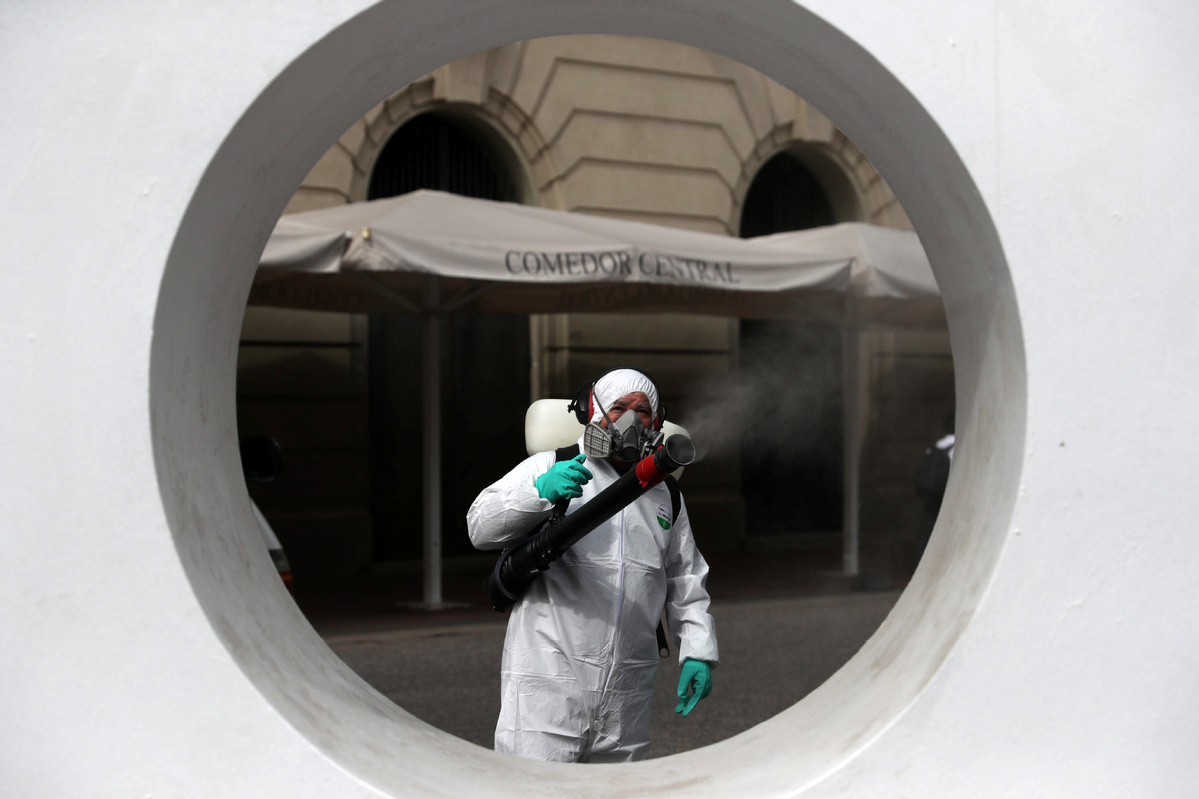Latin America sees continued rise in COVID-19 cases as Argentina takes stricter measures


MEXICO CITY - Latin American countries reported more COVID-19 cases on Wednesday, bringing the total number of infections to nearly 80,000.
In Peru, a total of 1,172 new cases were reported, bringing the number of infections to 11,475 with 254 deaths, the Health Ministry said.
"We have tested 109,385 people for COVID-19, obtaining 11,475 positive results and 97,910 negative results," the ministry said in a statement.
Seven legislators are among those who have tested positive, the statement added.
In Chile, a total of 8,273 cases have been reported with 94 deaths, said the Health Ministry.
In the past 24 hours, 356 new infections have been detected with three deaths, all of which are in the Santiago Metropolitan Region or in the La Araucania Region, the two most affected regions in Chile.
Some 743 healthcare workers out of a total of 360,000 have been infected with the virus and have been quarantined, according to the ministry.
Argentina has reported 128 new cases of COVID-19 across the country within the past 24 hours, with the total infections reaching 2,571, the Ministry of Health said.
"Today, 128 new cases of COVID-19 have been confirmed, bringing the total number of positive tests in the country to 2,571," the ministry said in a daily bulletin late Wednesday.
To contain the spread of the virus, Argentina's capital Buenos Aires announced on Monday that it was stepping up measures to curb the COVID-19 outbreak by making face masks mandatory on public transit starting Wednesday.
Besides, all those in a position to deal with the general public are required to wear a face mask, such as bus drivers, newspaper vendors, store clerks and civil servants.
As part of social distancing measures put in place by the government, supermarkets have limited the number of people shopping at one time to 30 and people who fail to wear face masks in public can be fined.
Noelia Mendoza, a housewife, said she supports making face mask compulsory in public.
"I think it's good, because some people who don't have symptoms may have the disease. It helps us take care of each other," said Mendoza.
































